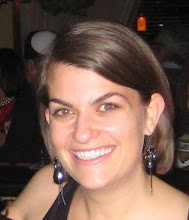Now that I am a bit rested I realized I completely forgot to post one of the most interesting things I learned this week: Hapax Legomenon. A Hapax Legomenon is when a word occurs only once in a text or document. Why am I telling you this?? Did you know that we base the way we do our shofar blowing on the basis of a Hapax Legomenon? its true!
In the Mishna, when it talks about what the Shofar should sound like it says it should sound like the wails of Sisrah's mother crying at the window. Sisrah was a king of an enemy nation of Israel who was assasinated by a woman named Yael by a tent peg as the two nations battled. (the whole story can be read in the book of Judges and is compiled by Deborah the judge). Anyways, Deborah writes the hebrew word Yevavot which is translated as 'wails/cries'. Turns out this is the ONLY place that the word Yevavot appears in the the Tanach (Torah, Prophets, Writings). But what interests me is that the Mishnah chose the same word. Since no-one knows what the cries of Sisrah's mother sounded like (she was not anywhere near the battle) we do a combination of blasts hoping to get it right. We know that it is not the Tekiah blast but either the Shevarim blast (representing longer sighs) or the Teruah blast that is shorter sobs, or a combination of the two.
There are multiple times when other words are used to represent crying in the Tanach. What I find so facinating is that we base it on this one word, that is found only once, by the mother of our enemy. Why didn't the Mishnah choose any other word? Why not say that the Shofar blasts sounded like the Jews crying out to God from Egypt or anything of the like? There must be something significant about it.
Here are my two cents: There is something to be said for remembering the human qualities of everyone in the world, enemy or friend. It is said that the Children of Israel were rebuked for rejoicing in the deaths of the Egyptians as they were swallowed up by the sea. The reason was that we are all created B'selem Elokim (in the image of God). The loss of any life on earth is equally upsetting in God's eyes. Maybe from our use of Yevavot we can deduce that just as in God's eyes we are all created equally, so too we must recognize that although we are a diverse world in every way when you strip us down we are all the same. We share all the same emotions of love, hate, sorrow, joy etc... Maybe as we enter into the Yomim Norahim (days of awe--10 days starting with Rosh Hashanah and ending with Yom Kippur) it should not only be one of self reflextion and introspection. We strip ourselves down to the most basic of human emotions. Maybe at the height of our own impassioned cries we will remember that our cries are no different than every other person on this earth--even the mothers of our enemies. I will not be so bold to say how this may translate into action, but it is a thought to keep in mind on how this may personally relate to you.
Subscribe to:
Post Comments (Atom)

No comments:
Post a Comment